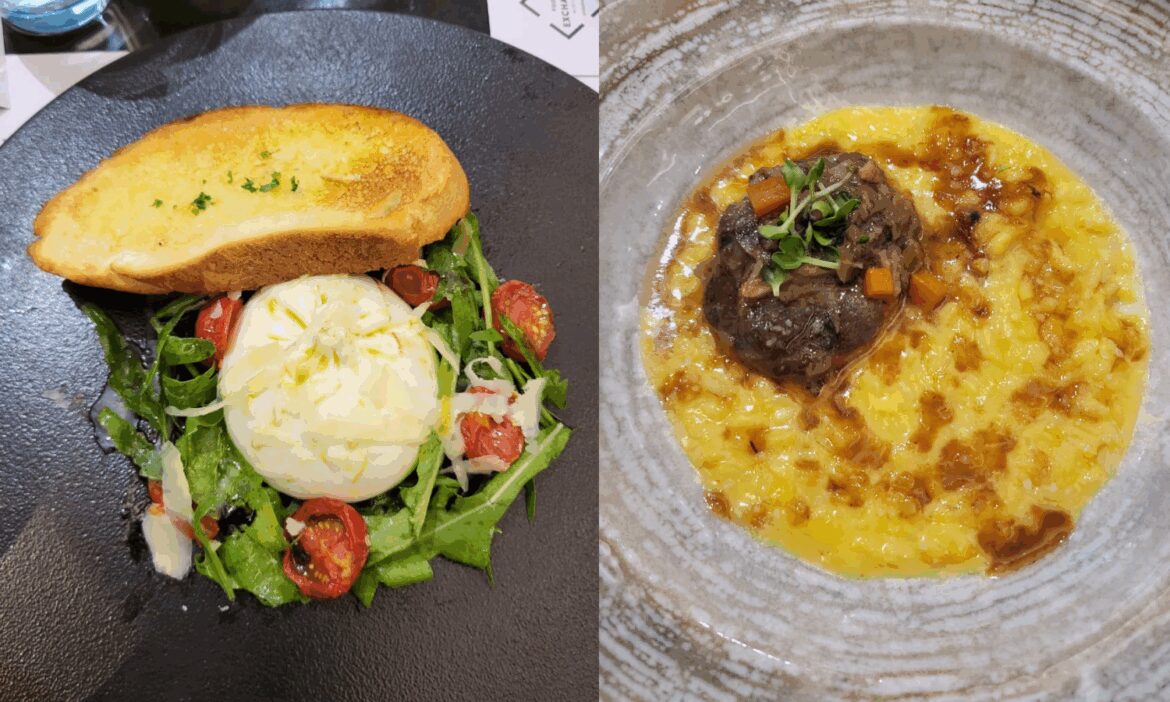When Chef Francesco Calvani talks about food, he doesn’t begin with technique or Michelin-starred rigor. He begins with memory. “I started to cook with my grandmother when I was six,” he says, almost as if he’s back in that kitchen in Rome, watching a pot simmer longer than his attention span. Long before he entered Le Cordon Bleu and long before his 15-hour days in Gordon Ramsay’s kitchens, his understanding of cuisine began at home — with the aroma of vegetables softening in olive oil and the rhythm of Roman Sundays.
His career has travelled far since then. “I adapt all the French techniques I learned into Italian cuisine,” he explains. The result is a style that is rooted in heritage but refined by world-class training. Twenty-two years of cooking across countries has sharpened not just his craft but also his purpose. “My goal is to teach how to use ingredients properly. In Italy, we have more than 100 kinds of tomatoes. I want people to know why one tomato works for one recipe and not for another.”
At HICC Novotel in Hyderabad, where he is curating a special Italian pop-up, this philosophy sits at the heart of his menu. Roman cooking, he says, is built on vegetables — deceptively simple ingredients that require great discipline. But sourcing them outside Italy brings its own challenges. “Some ingredients are easy to find here, some are expensive because they are imported,” he says. The ones marked DOP — Parmigiano Reggiano, Pecorino Romano, Gorgonzola — are non-negotiable. “If it’s not made in that area, it’s not the same cheese,” he adds with a clarity that comes from a lifetime of tasting authenticity.
His menu for the Novotel HICC pop-up, which is on till November 30, reflects this devotion. There are six starters, two soups, four pastas, and five mains — from a Tuscan bean and black kale soup to a delicate fritto of prawns and calamari with Amalfi lemon mayo. His risotto Milanese arrives with a twist for India: “We use lamb shank instead of veal,” he notes. And then there is the one dish that carries his heart — the aubergine parmigiana. “It’s the only one that is very, very, very traditional. It reminds me of home.”
Hyderabad is new to him, and he stepped into the city the way cooks do — by tasting. “I tried biryani. It’s very tasty,” he smiles. He never looks for Italian food when he travels. “I always look for ethnic and original cuisine at the place I go.” And like any chef who wanders, he carries stories back with him. “I make butter chicken once a month,” he confesses. “My wife loves it.” He travels with spices stuffed into his suitcase, recreating flavours from cities he leaves behind.
For all his openness to new ideas, he is fiercely protective of the classics. Ask him about modern twists and he doesn’t hesitate. “Original recipes don’t need a twist,” he says flatly. “We only need to teach people.” His voice softens into humour when he adds, “If I see someone putting cream in carbonara, I get a heart attack.” Carbonara, for him, is three ingredients — eggs, pork cheek (or bacon here) and Pecorino Romano DOP. Nothing more.
And yet, even he allows creativity when the dish is claimed honestly. Last year, he made ravioli stuffed with butter chicken — a playful fusion that became a hit. “It’s my dish,” he says. “We give it a new name. That’s how you create.” It is this balance — reverence for tradition, curiosity for flavour, and honesty of intention — that makes his cooking resonate across borders.
At HICC Novotel, he finds chefs who are eager, trained, and deeply familiar with Italian cuisine. “With my knowledge, we can improve together,” he says. His pop-up, which begins today, is not just a showcase of Roman cooking; it is a conversation between cultures, a reminder that food travels even when recipes don’t.
And as he prepares to serve guests, Hyderabad has already served him something in return — generosity, warmth, and a plate of biryani that he will almost certainly try recreating back in Rome.


Dining and Cooking